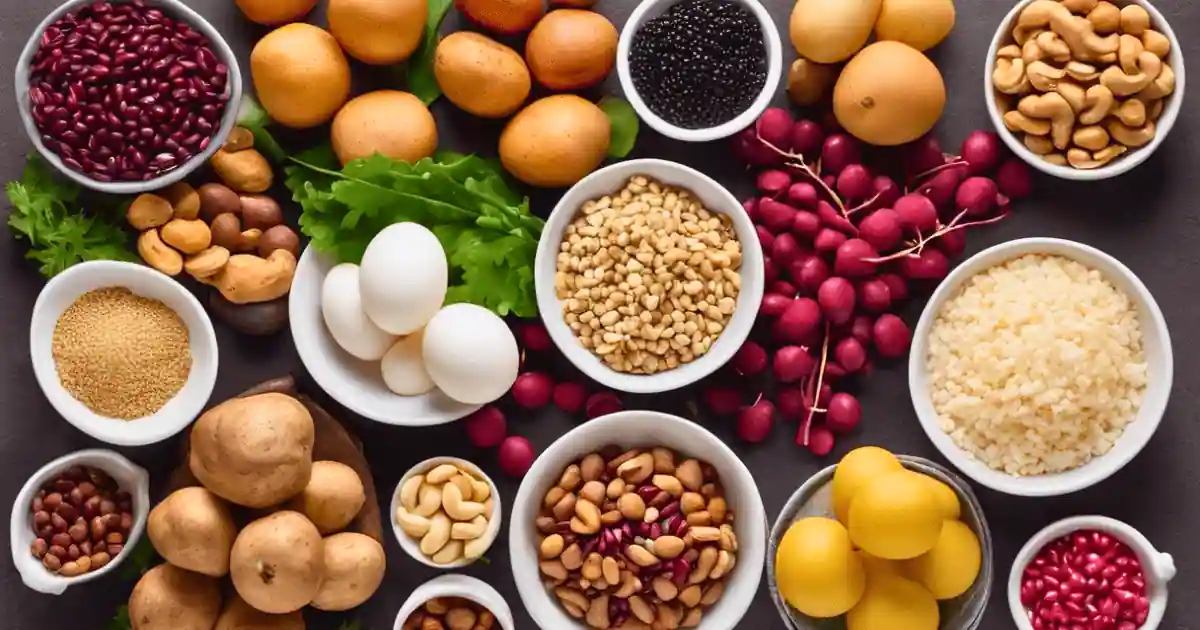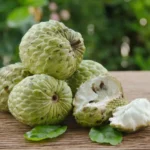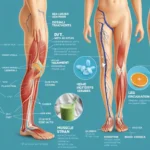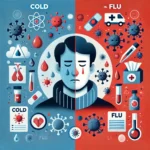Discover the top 10 foods you should never eat raw to protect your health and avoid potential harm from consuming these risky uncooked items.
The Importance of Cooking Certain Foods
Certain foods contain natural toxins or bacteria that can be harmful when consumed raw. Cooking these foods can help eliminate these risks and make them safe for consumption. Cooking certain foods also helps break down tough fibers, making them easier to digest and absorb nutrients.
Reasons why cooking certain foods is essential:
– Kills harmful bacteria:
Cooking foods like meat, poultry, and eggs thoroughly kills harmful bacteria such as E. coli, Salmonella, and Listeria that can cause foodborne illnesses.
– Destroys natural toxins:
Some foods like kidney beans, cassava, and rhubarb contain natural toxins that can be harmful if consumed raw. Cooking these foods can help break down these toxins and make them safe.
– Improves nutrient absorption:
Cooking certain foods can break down tough fibers and cell walls, making it easier for our bodies to digest and absorb essential nutrients like vitamins, minerals, and antioxidants.
– Enhances flavor and texture:
Cooking can improve the taste and texture of certain foods, making them more palatable and enjoyable to eat.
– Increases digestibility:
Cooking certain foods can make them easier to digest, reducing the risk of digestive issues like bloating, gas, and indigestion.
– Reduces the risk of foodborne illnesses:
By cooking foods like seafood, meat, and eggs thoroughly, you can reduce the risk of foodborne diseases caused by bacteria, viruses, and parasites.
Cooking certain foods is essential for ensuring food safety, improving nutrient absorption, and enhancing our foods’ overall taste and digestibility. Being mindful of how we prepare and cook these foods can optimize our health and well-being.
10 Foods You Should Never Eat Raw
1. Meats: Why They Should Always Be Cooked
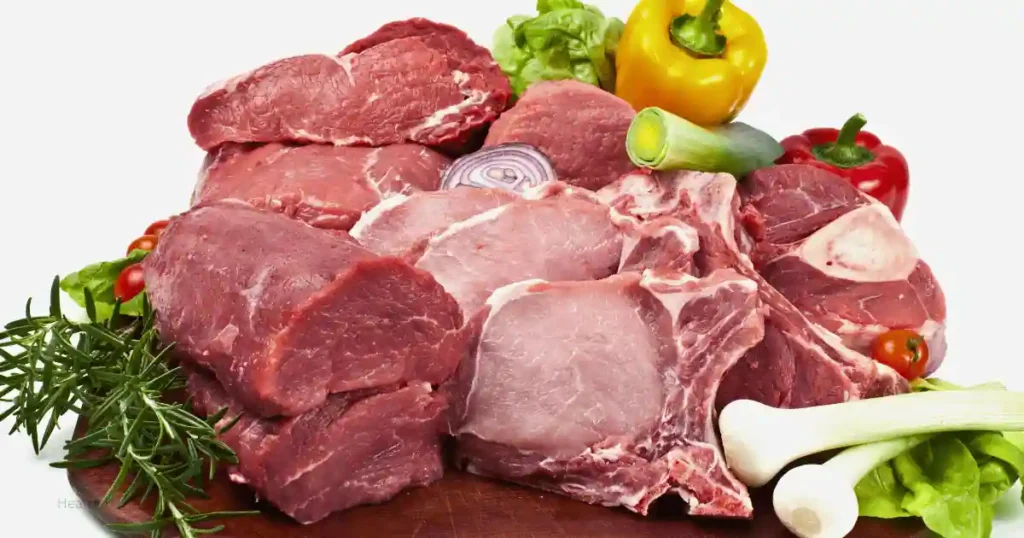
Meats like beef, poultry, and pork should always be cooked thoroughly to minimize the risk of foodborne illnesses. The reasons why one should never consume meats raw are as follows:
– Bacteria Contamination:
Raw meat can contain harmful bacteria such as E. coli, Salmonella, and listeria, which can cause severe illnesses when consumed.
– Parasitic Infections:
Cooking is the only way to kill parasites that can be found in some meats, such as pork and game meats. Consuming raw meat puts individuals at risk of parasitic infections.
– Digestibility:
Cooking meat makes it easier to digest, as the heat breaks down the proteins and connective tissues, making it less taxing on the digestive system.
– Nutrient Availability:
Cooking meat can increase the bioavailability of certain nutrients like iron and protein, making them more accessible for the body to absorb and utilize.
For these reasons, it is crucial always to cook meats thoroughly to ensure food safety and protect against potential health risks associated with consuming raw meats.
2. Eggs: Why Raw Eggs Can be Risky

Consuming raw eggs can pose health risks due to the potential presence of bacteria, primarily Salmonella. When eggs are not cooked, the bacteria are not killed, increasing the risk of foodborne illness. Symptoms of Salmonella poisoning include nausea, vomiting, abdominal cramps, diarrhea, fever, and headache.
Additionally, raw eggs contain avidin, a protein that can bind to biotin, a B vitamin essential for metabolism. When avidin binds to biotin, it can lead to a biotin deficiency in the body, causing symptoms like hair loss, skin rash, and neurological problems. Cooking eggs neutralizes avidin, making biotin more available for absorption by the body.
Dishes like Caesar salad dressing, homemade mayonnaise, and raw cookie dough often use raw eggs. However, pasteurized eggs or egg products should be used in recipes that require raw eggs to minimize the risk of Salmonella contamination. Pasteurization involves heating eggs to a specific temperature to kill harmful bacteria while preserving the egg’s texture and flavor.
By avoiding the consumption of raw eggs and opting for pasteurized alternatives, individuals can reduce their risk of foodborne illnesses and potential nutrient deficiencies. It is essential to prioritize food safety when preparing dishes that involve eggs to safeguard one’s health.
3. Seafood: The Dangers of Eating Raw Fish

Eating raw fish, known as sashimi or sushi, can pose potential health risks due to bacterial, viral, or parasitic contamination. Consuming seafood raw increases the chances of ingesting harmful pathogens that can cause foodborne illnesses. The following are reasons why eating raw fish can be dangerous for health:
– Bacterial Contamination:
Raw fish, especially from freshwater sources, can harbor bacteria such as Salmonella, Vibrio, or Listeria. These bacteria can cause severe gastrointestinal issues like vomiting, diarrhea, and even more serious conditions.
– Parasitic Infections:
Raw fish like sushi from certain species such as salmon, trout, or mackerel may carry parasites like tapeworms or roundworms. These parasites can infect the human digestive system if the fish is improperly handled or prepared, leading to discomfort and health complications.
– Mercury Exposure:
Some types of fish, substantial predatory fish like tuna or swordfish, can accumulate high levels of mercury in their flesh. Consuming raw fish from these species can expose individuals to mercury poisoning, harming the nervous system and overall health.
– Viral Contamination:
Raw seafood can also be a source of viral infections such as Hepatitis A or norovirus. These viruses can cause symptoms ranging from mild discomfort to severe illness, posing a risk to individuals with compromised immune systems.
Given these risks, it is recommended to ensure that any seafood, especially fish, is properly cooked to kill off potentially harmful bacteria, parasites, and viruses. Cooking seafood thoroughly can help mitigate the dangers of consuming raw fish and promote better health outcomes.
4. Potatoes and Green Potatoes: The Risks of Raw Consumption

Regarding potatoes, it is essential to be cautious about consuming them raw. Raw potatoes contain toxic compounds called solanine and chaconine, which can cause gastrointestinal issues such as nausea, vomiting, and diarrhea if ingested in large amounts. These compounds are part of the potato’s natural defense system against pests and diseases, and they are typically found in higher concentrations in green potatoes and potato sprouts.
Green potatoes, in particular, should never be consumed raw as they contain higher levels of solanine due to exposure to light. Solanine is a glycoalkaloid that can be harmful when consumed in large quantities, leading to symptoms like headaches, stomach cramps, and even neurological effects. To minimize the risk of consuming harmful levels of solanine and chaconine, it is recommended to promptly peel, cook, and eat potatoes.

Raw green potatoes or potato sprouts can also increase the risk of food poisoning caused by bacteria like E. coli or Salmonella. These bacteria can be present on the potato skin and may not be eliminated through washing alone. Cooking potatoes at high temperatures can destroy these harmful bacteria, making them safer.
To ensure the safety of consuming potatoes, cooking them thoroughly before eating is best. Boiling, baking, or roasting potatoes above 170°F (77°C) can help break down the toxic compounds and make them safe for consumption. You can enjoy their nutritional benefits by cooking potatoes properly without risking any adverse health effects.
5. Kidney Beans: The Importance of Proper Cooking
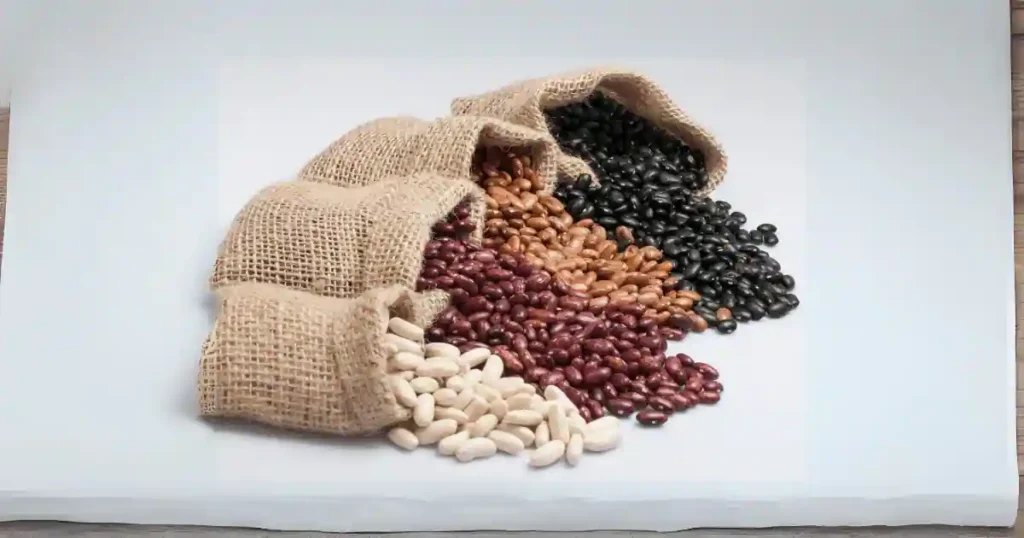
Kidney beans are a popular legume known for their high protein and fiber content. However, raw kidney beans can be harmful due to a naturally occurring toxin called lectin. Proper cooking is crucial when it comes to kidney beans to ensure that this toxin is neutralized.
– Reasons why kidney beans should never be eaten raw:
- Toxin content: Raw kidney beans contain high levels of lectin, which can cause symptoms like nausea, vomiting, and diarrhea when consumed in large quantities.
- Difficulty digestion: Raw kidney beans are hard to digest due to their complex sugars and proteins, leading to gastrointestinal discomfort.
- Nutrient absorption: Cooking kidney beans breaks down their tough outer shells, making it easier for the body to absorb essential nutrients.
– Importance of cooking kidney beans properly:
- Neutralizing toxins: Cooking kidney beans at high temperatures for an adequate period helps deactivate lectin, making them safe for consumption.
- Enhanced digestibility: Proper cooking softens the beans, making them easier to digest and reducing the risk of digestive issues.
- Improved nutritional value: Cooking kidney beans improves their flavor, texture, and overall nutritional profile, ensuring maximum bodily benefits.
It is essential to soak and cook kidney beans thoroughly before including them in any dish to unlock their nutritional benefits while avoiding potential health risks associated with consuming them raw.
6. Milk: The Potential Hazards of Drinking Raw Milk

- Raw milk can contain harmful bacteria such as E. coli, Salmonella, and Listeria, leading to serious foodborne illnesses.
- Raw milk can harbor parasites like Giardia and Cryptosporidium without pasteurization, causing gastrointestinal issues.
- The risk of contracting infections from raw milk is higher for pregnant women, young children, the elderly, and individuals with weakened immune systems.
- Despite claims of enhanced nutritional value, no scientific evidence supports the idea that raw milk is healthier than pasteurized milk.
- Regulatory bodies like the FDA and CDC strongly advise against consuming raw milk due to the potential health risks.
- Pasteurization is a critical process that helps eliminate harmful pathogens and ensure the safety of milk for human consumption.
- Pasteurized milk is a safer choice to minimize the risk of foodborne illnesses associated with raw milk.
- Individuals considering raw milk consumption should carefully weigh the potential hazards and consult healthcare professionals.
7. Sprouts: Why They Should Always Be Cooked
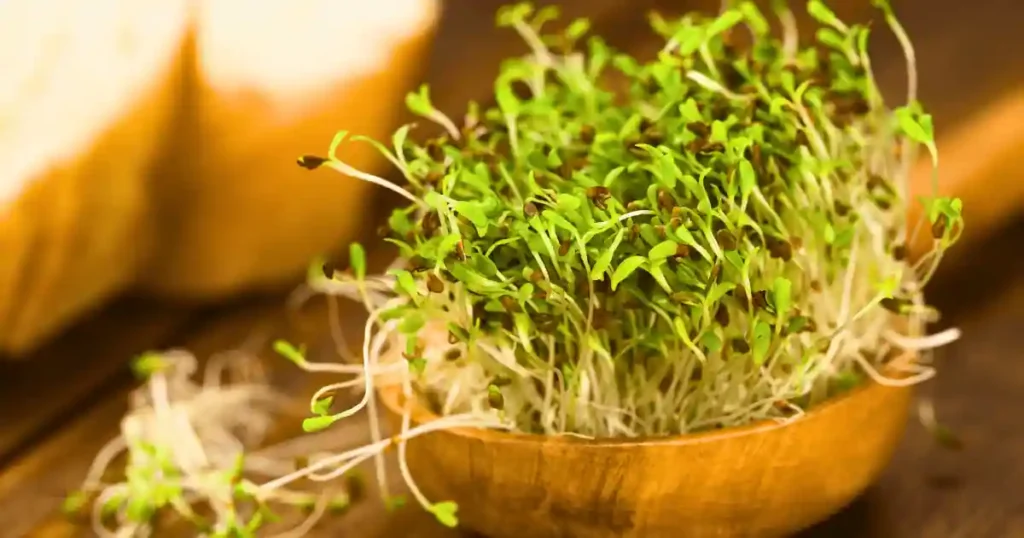
Consuming sprouts raw can pose some health risks, although they are often associated with being a healthy addition to salads or sandwiches. Sprouts are highly susceptible to bacterial contamination during the sprouting process, which has been connected to several outbreaks of foodborne illness.
Cooking sprouts thoroughly can help reduce the risk of foodborne illnesses, as it kills harmful bacteria that may be present on the sprouts. Additionally, cooking sprouts can make their nutrients more digestible and bioavailable for the body to absorb.
Here are some reasons why sprouts should always be cooked before consumption:
- Safety: Cooking sprouts kills harmful bacteria such as E. coli, Salmonella, and Listeria, reducing the risk of foodborne illnesses.
- Digestibility: Cooking sprouts breaks down tough fibers and makes their nutrients more easily digestible for the body.
- Nutrient Absorption: Cooking sprouts can increase the bioavailability of vitamins, minerals, and antioxidants.
- Improved Flavor: Cooking sprouts can enhance their flavor profile, making them more enjoyable.
While sprouts are nutritious and offer health benefits, it is essential to cook them before consumption to lower the risk of foodborne illnesses and increase the bioavailability of nutrients.
8. Flour
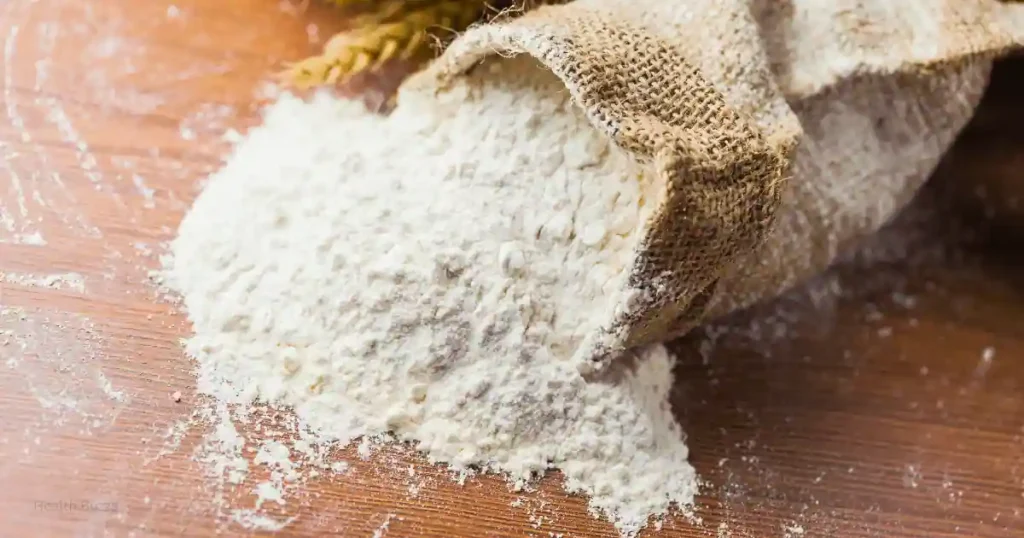
Consuming raw flour poses significant health risks due to its potential contamination with harmful bacteria, including E. coli. These bacteria are naturally present in the environment and can contaminate grain while still in the field or during the milling process. The only way to ensure that flour is safe for consumption is by cooking it. This process kills any present bacteria, preventing foodborne illnesses that can range from mild to severe.
The USDA advises cooking any food containing flour to the recommended internal temperature of at least 160°F (71°C) and avoiding consuming raw doughs or batters. Ensuring this is crucial to prevent the risk of foodborne illness. This precautionary step is crucial when preparing foods at home, where the temptation to taste raw dough or batter can be high.
9. Bitter Almonds

Raw bitter almonds have higher levels of amygdalin that can lead to cyanide poisoning. Eating sweet almonds raw is safe, but bitter almonds require heat treatment to eliminate the risk of poisoning.
10. Cassava

People in many parts of the world consume cassava, or yuca, which is a starchy root vegetable. Raw cassava contains cyanogenic glycosides, compounds that can release cyanide when ingested. Proper cooking is essential to detoxify cassava and make it safe for consumption. Boiling or fermentation of the cassava tuber can reduce its cyanide content to safe levels.
Unwashed Fruits and Vegetables: The Importance of Proper Cleaning

Eating raw fruits and vegetables is undeniably good for one’s health, but ensuring they are properly cleaned is essential to avoid potential risks. Here are some key points to consider:
Pesticides: Fruits and vegetables are often treated with pesticides to protect them from pests and diseases. These chemicals can linger on the surface of the produce, making it crucial to wash them thoroughly before consumption.
Bacteria and Contaminants: Fruits and vegetables can harbor harmful bacteria such as E. coli and Salmonella, as well as other contaminants from the environment. Washing them with clean water can help remove these pathogens and reduce the risk of foodborne illnesses.
Dirt and Residue: Even if fruits and vegetables appear clean, they may still have dirt, dust, or other residues on their surface. Properly washing them under running water can eliminate these impurities, making the produce safer.
Wax and Coatings: Some fruits, like apples and cucumbers, may have wax or edible coatings applied to improve their appearance and extend their shelf life. Washing these fruits with water and gently scrubbing them can help remove these coatings before consuming them.
Storage and Handling: Properly storing and handling fruits and vegetables can prevent contamination. Keeping them separate from raw meats, washing cutting boards, and utensils after use, and storing produce in the refrigerator can all contribute to food safety.
Cleaning fruits and vegetables before eating them raw must be balanced. Taking the time to wash and handle produce properly can significantly reduce the risk of foodborne illnesses and ensure that you reap the full benefits of these nutrient-rich foods.
Conclusion: The Benefits of Cooking Certain Foods
- Cooking certain foods can break down tough fibers and make nutrients more available for the body to absorb.
- Heat can kill harmful bacteria, parasites, and viruses that may be present in raw foods.
- Cooking can enhance certain foods’ flavor, texture, and aroma, making them more enjoyable to eat.
- Some foods contain natural toxins that cooking can neutralize or reduce.
- Cooking certain foods can make them easier to digest, especially for individuals with sensitive digestive systems.
- Cooking foods can reduce the risk of foodborne illnesses for individuals with compromised immune systems.
While raw foods have benefits, cooking certain foods can provide numerous advantages for overall health and well-being. By understanding the benefits of cooking specific foods, individuals can make informed choices about their diet to promote better health outcomes.
Hi there! I’m content writer and blogger. With over two years of experience, I’ve shared my passion for writing across various platforms. I firmly believe in the transformative power of words and look forward to sharing this journey with you. Enjoy my work!
